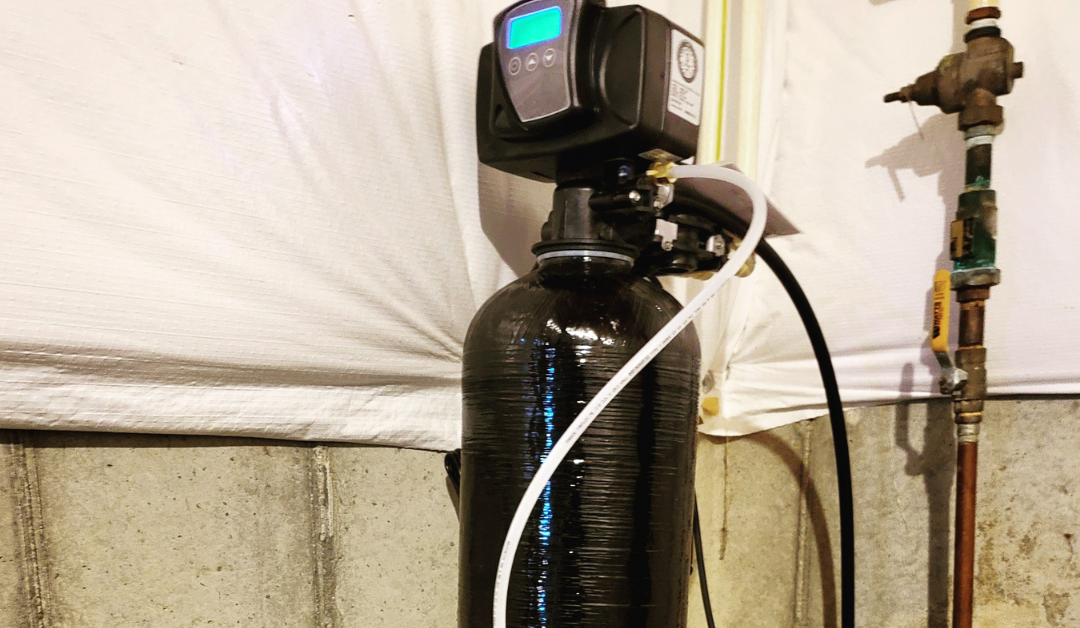Hard water is a common problem experienced by millions of households across the globe. It’s characterized by a high concentration of minerals like calcium and magnesium, which can lead to a myriad of issues within your home’s plumbing system and appliances. Knowing when it’s time to invest in a water softener can save you from future headaches and expenses.
Understanding Hard Water
Before diving into the signs that indicate the need for a water softener, it’s important to understand what hard water is. Hard water contains dissolved minerals at a higher level than normal. While these minerals aren’t harmful to human health, they can cause various problems in your home.
The Science Behind Hard Water
The “hardness” of water is determined by the concentration of multivalent cations present, predominantly calcium (Ca2+) and magnesium (Mg2+). When water percolates through deposits of limestone and chalk in the ground, it accumulates these minerals, which contribute to the hardness of the water.
Measuring Hard Water
Water hardness is measured in grains per gallon (GPG), milligrams per liter (mg/L), or parts per million (ppm). As a general guide:
- Soft Water: 0-1 GPG
- Slightly Hard: 1-3.5 GPG
- Moderately Hard: 3.5-7 GPG
- Hard: 7-10.5 GPG
- Very Hard: Over 10.5 GPG
Top Signs You Need a Water Softener
Let’s explore some of the most telling signs that hard water may be running through your pipes.
Scale Buildup on Appliances
One of the most visible signs of hard water is the presence of scale or crusty buildup around faucets, showerheads, and appliances such as kettles and dishwashers. This scale, primarily composed of calcium carbonate, can impair the performance and reduce the lifespan of these appliances.
Soap Scum and Bathtub Rings
Hard water reacts with soap to form a sticky residue known as soap scum. This can leave unsightly rings around your bathtub and a cloudy film on glass shower doors which are hard to clean.
Dull and Dingy Laundry
Fabrics washed in hard water often come out looking dull and feeling scratchy, as the minerals can trap dirt and soap in the fibers. Clothes may wear out faster because of the repeated washing needed to try to get them clean.
Reduced Water Heating Efficiency
When hard water is heated in your water heater or boiler, it leads to the formation of limescale, a hard, chalky deposit. This accumulation can insulate the heating element, making it less efficient and leading to increased energy costs.
Dry Skin and Brittle Hair
The minerals in hard water can strip moisture from your skin and hair, leading to irritation, dryness, and an increase in eczema or dermatitis in those with sensitive skin. Hard water can also leave hair looking limp and lifeless.
Clogged Plumbing
Over time, the minerals in hard water can deposit inside pipes, reducing water flow and leading to clogs or increased pressure that may eventually cause leaks or burst pipes.
Spotty Glassware and Dishes
You may notice spots or a milky haze on glassware and dishes after they’re cleaned. These spots are caused by mineral residues that water leaves behind as it evaporates during the drying cycle.
Increased Soap and Detergent Usage
Hard water doesn’t lather as easily as soft water, which means you end up using more soap and detergent. This not only costs you more money but also increases the environmental impact due to higher usage of cleaning products.
The Benefits of a Water Softener
Once you’ve recognized these signs, investing in a water softener can bring numerous benefits.
Enhanced Appliance Lifespan
Soft water prevents scale buildup, ensuring your appliances operate efficiently and last longer.
Cleaner Laundry and Dishes
Without hard minerals getting in the way, soap rinses out completely, leaving fabrics and dishes spot-free and bright.
Healthier Hair and Skin
Soft water balances your skin’s natural oils, resulting in softer skin and more manageable hair.
Plumbing Preservation
Soft water reduces the mineral accumulation in pipes, decreasing the risk of clogs and corrosion.
Cost Savings
Reduced scale buildup means lower energy bills, less detergent use, and fewer appliance repairs.
If your home is showing any of the hard water signs mentioned above, it might be time to consider a water softener. A water softening system transforms the quality of water in your home, protects your investments, and improves daily life. It’s an investment that pays off in longevity, efficiency, and personal comfort. Contact our team for more information today.

